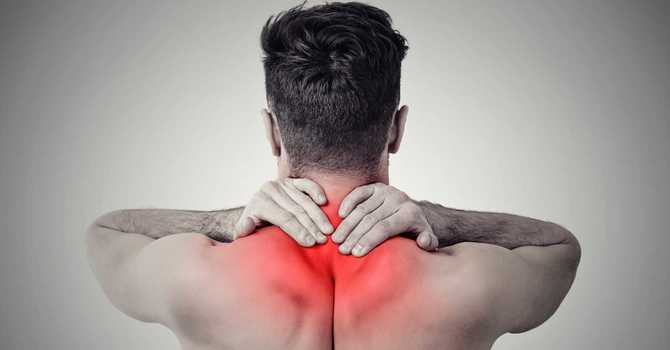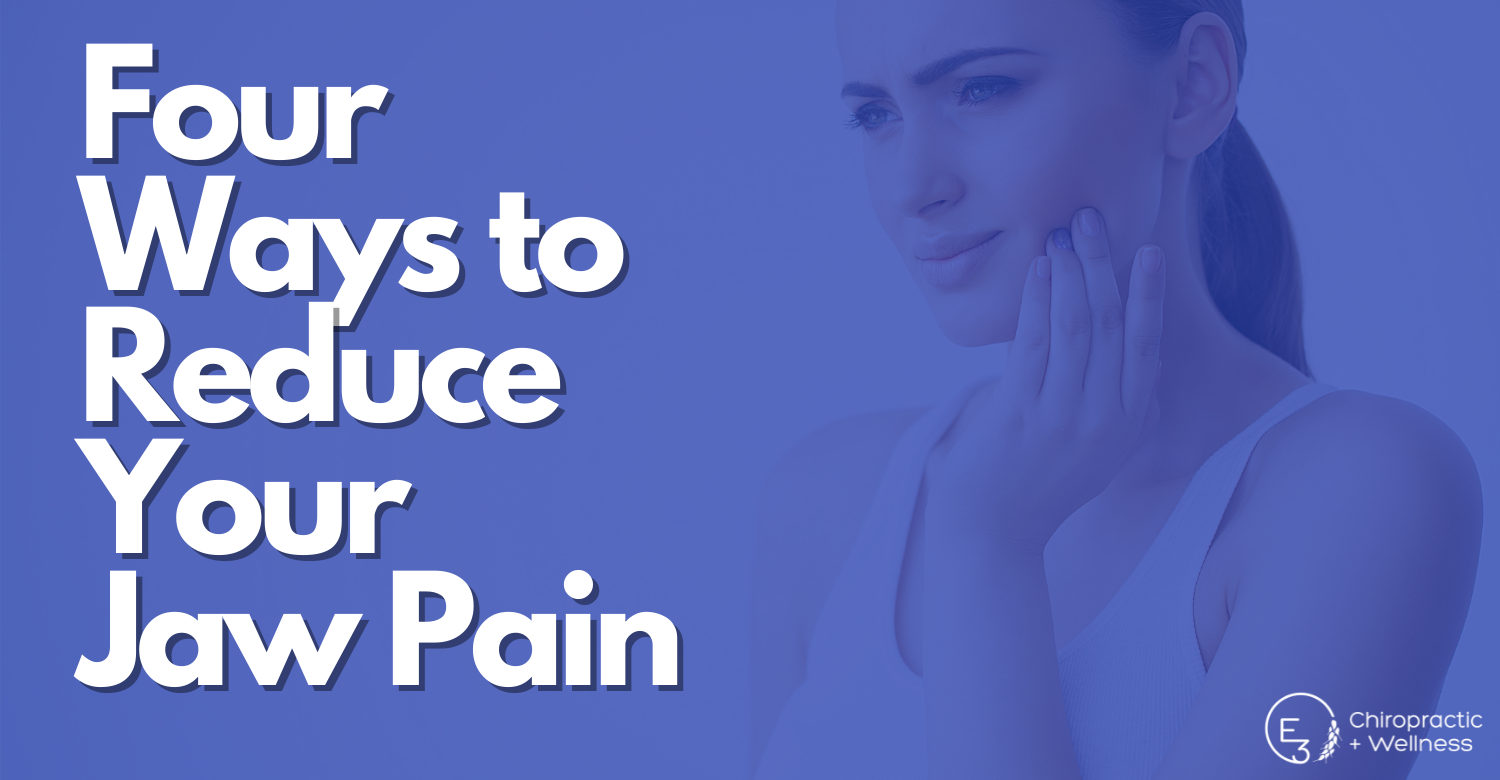
Jaw pain is incredibly frustrating, and sadly, quite common. When your jaw hurts or clicks, it can make you nervous to chew, yawn, or even talk!
Research shows us that nearly 25% of us will experience jaw pain or jaw clicking at least once in our lifetime.
After reading this blog, you will better understand what causes jaw pain, why your jaw may be clicking, and four things you can do to help with your jaw pain or clicking!
What Is Temporomandibular Dysfunction?
Temporomandibular Disorder (TMD) is a term used to describe a group of problems that cause pain in the temporomandibular joint, also called the TMJ. These problems can arise from irritation of the muscles around the joint, the disc within the joint, or the bony portion of the joint itself. You may notice jaw clicking, limited mouth opening, possible jaw locking, and pain around your jaw if you have TMD.
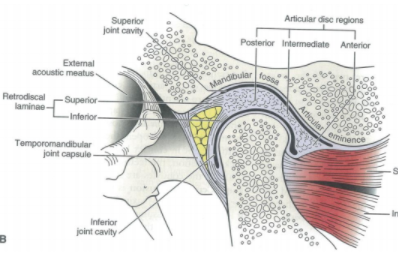
Why Does My Jaw Click?
When your jaw clicks, this is most commonly due to something called an “anteriorly displaced disc”. Within your TMJ, a disc provides a smooth surface for the joint to move on. As you open your jaw, this disc slides forwards and backwards.
However, in some individuals, this disc will shift forward or anteriorly. When this happens, this disc is now in the way of normal movement of the jaw. When you try to open your jaw, the disc is obstructing the movement of the joint and must quickly move backward to create space for the joint to complete its movement. The same thing happens when you close your mouth. You can see this in the video below.
Four Things To Help With Your Jaw Pain/Clicking
1. Jaw Resting Position
Stress is a common factor that can lead to increase jaw pain. As we become stressed, we often begin to clench our jaw. As we clench our jaw, we are constantly putting force into our TMJ throughout the day, leading to irritation.
As we clench our jaw, we are also constantly using our jaw muscles should only be used when chewing. This can result in the over-use of those muscles, causing TMJ pain.
To combat the stress of clenching your jaw, using the proper jaw resting position can help immensely! The jaw rest position includes:
- Place your lips together
- Keep your teeth apart
- Place your tongue on the roof of your mouth
I encourage my patients to place small, colourful stickers in commonly seen places, such as the corner of their laptop, the corner of their rearview mirror, the back of their phone, and use them as reminders in the right jaw resting position.
Whenever you see a sticker, ensure your lips are together, your teeth are apart and place your tongue on the roof of your mouth.
Go to the bottom of the page to download a PDF document outlining the proper mouth resting position, as well as breathing exercises for additional help!
2. Proper Mouth Opening
Ensuring proper “gait” of our jaw as we open and close our mouth is important! Talking, chewing and yawning are things we do very frequently throughout the day. Ensuring that we are doing this correctly can be very beneficial for those experiencing jaw pain.
Jaw Opening Exercise
For this exercise, we want to be either lying down or sitting with good posture. Imagine a string is pulling at the top of our head, making our spine long. Maintain this posture, place the tongue on the roof of your mouth, and open your mouth as wide as you can. DO NOT let your neck arch to move your mouth more, and don’t let your tongue leave the roof of your mouth!
Posture While Chewing
This may seem like I am being a little bit picky, but proper posture while chewing is important. As we are eating, we want to maintain a tall posture; imagine that a string is pulling the top of your head. If we chew with poor posture, slouched forward, this does not allow the proper muscles involved in chewing to be active and encourages improper gait of our jaw. This done repeatedly over time can result in jaw pain.
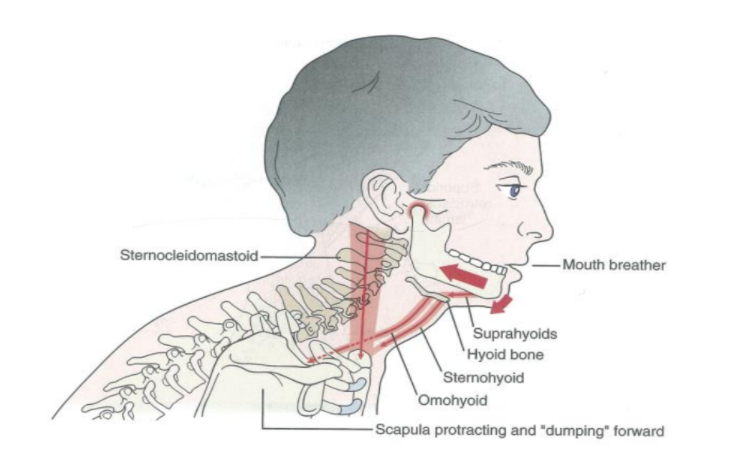
3. Avoid Chewing Gum
I know that chewing gum can be the saving grace for some, but this is essential!
If you have TMJ pain or clicking, repeatedly using your jaw muscles and putting additional stress onto your TMJ can be detrimental. Avoiding gum is NOT something to be avoided forever. It is a temporary change as your body heals an injury.
4. Receive Chiropractic Care for TMJ Pain/Clicking
TMJ pain/clicking is frustrating, and many factors can contribute to jaw pain. Research shows that dysfunction in your neck contributes to about 50% of jaw pain. Research shows that bite pattern (occlusion) issues may also contribute to your jaw pain.
Have a healthcare practitioner that assesses ALL contributing factors to your jaw pain is essential.
Dr. Gryba at E3 Chiropractic + Wellness has additional training to assess jaw pain and ensure that you are getting the treatment you deserve to reduce your jaw pain.
If you are currently experiencing jaw pain or clicking, click HERE to book an appointment with Dr. Gryba today!


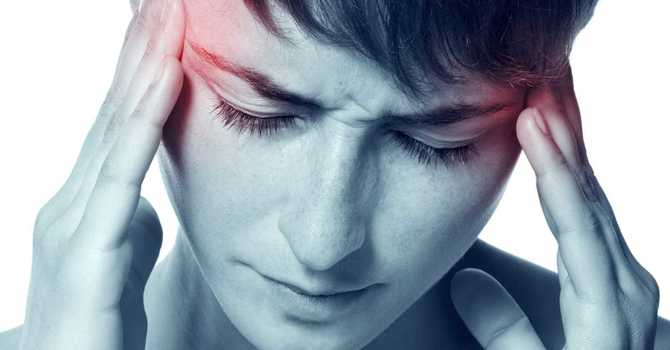
.jpg)
